
Welcome back to this week’s edition of the Power BI
blog series. This week, we look at the so-called Hierarchical Axis.
One of Power BI’s
Cartesian charts’ more useful capabilities is the option to visualise multiple
categorical fields in an hierarchical x-axis.
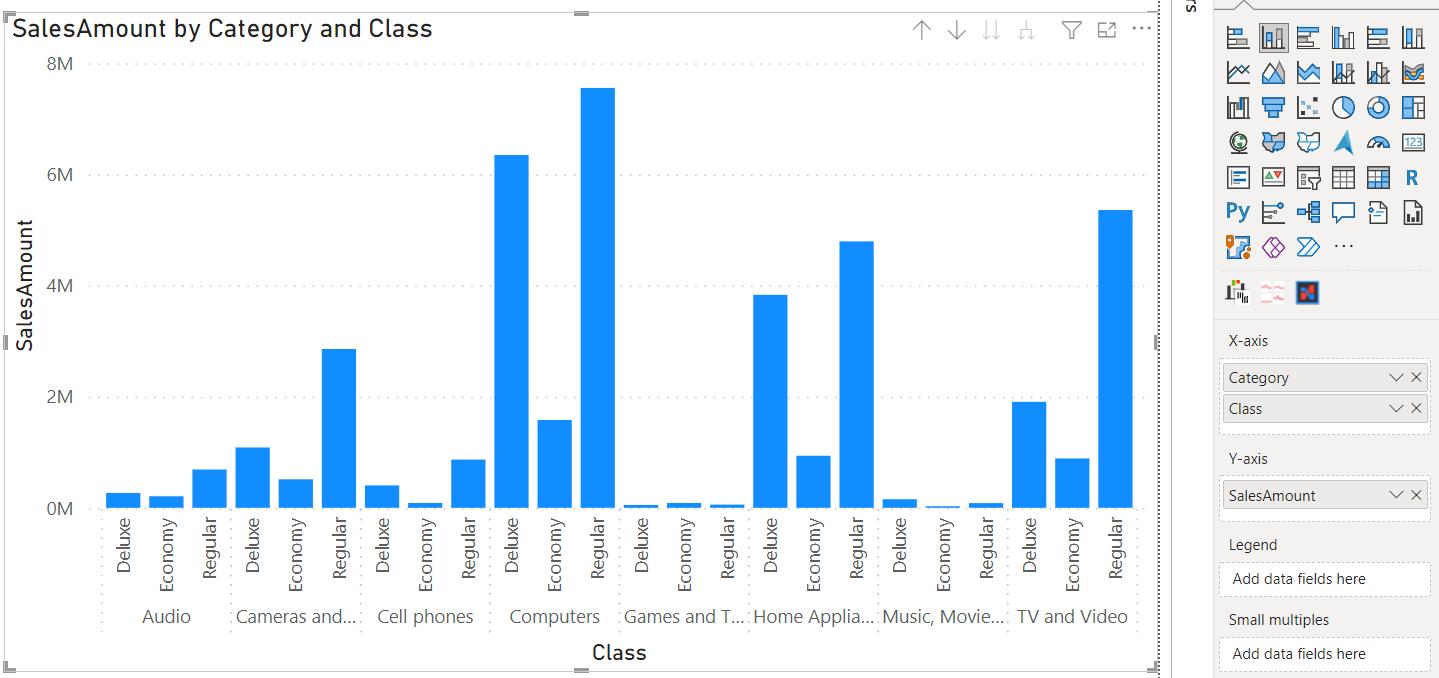
The grouped x-axis
is an organised way to add an additional dimension to the data in your charts,
especially when dealing with subcategories that are specific to individual
category fields or sequential subcategories such as more granular dates.
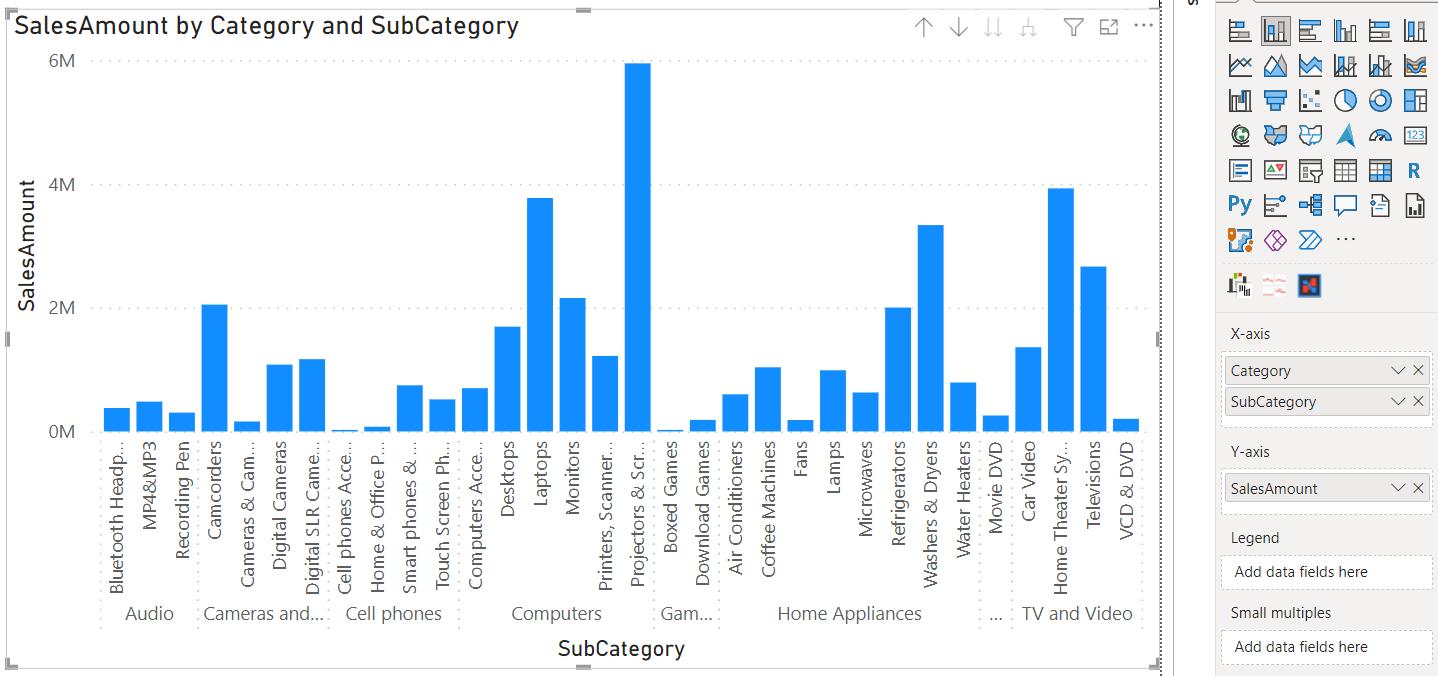
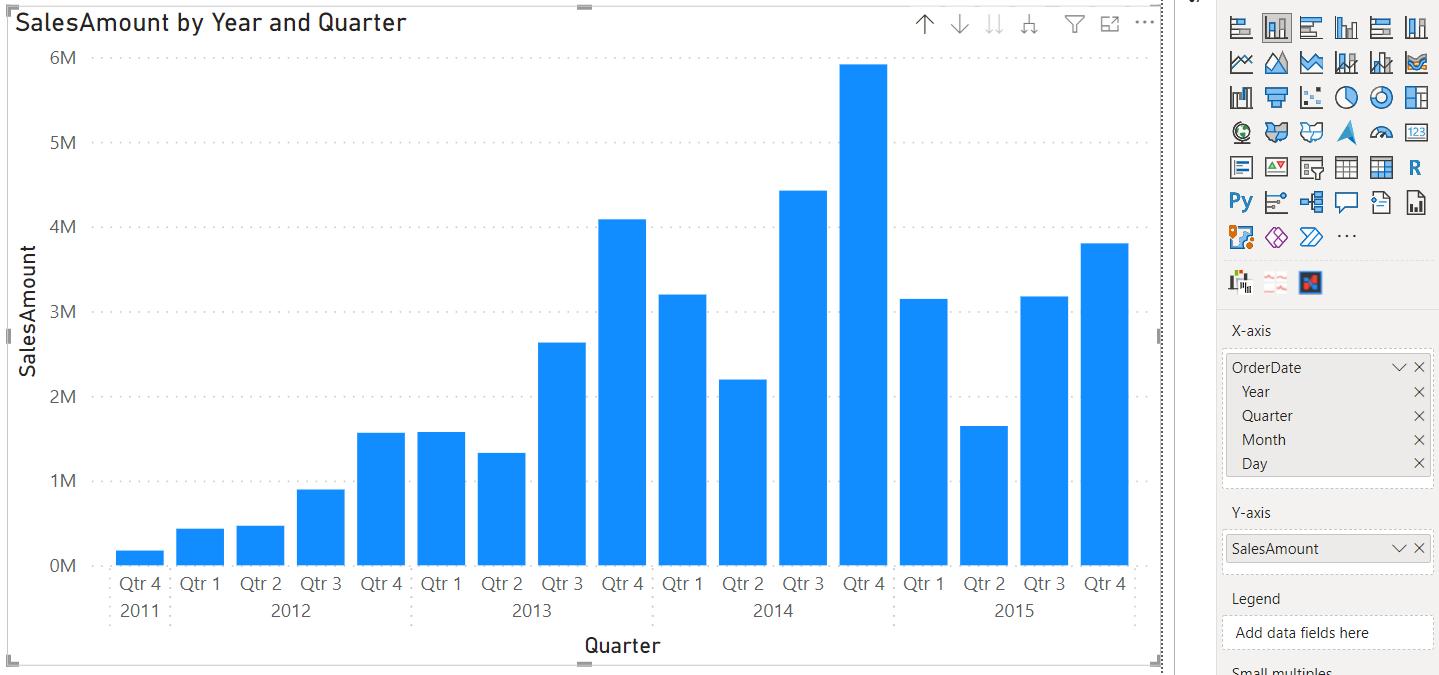
A different form of
visualising these additional dimensions, like using a legend or small
multiples, would not be nearly as clear as the hierarchical x-axis. However, before this release, formatting a
chart to use the hierarchical x-axis was a multi-step process involving:
- adding a
new field to the X-axis field well and knowing to expand the visual down to the
next level, or else nothing would change
- turning off
the concatenate labels option in the Formatting pane, which would often still
result in nothing happening because the user also had to sort the visual by the
axis fields rather than by value fields, otherwise categories and subcategories
would not be grouped properly.
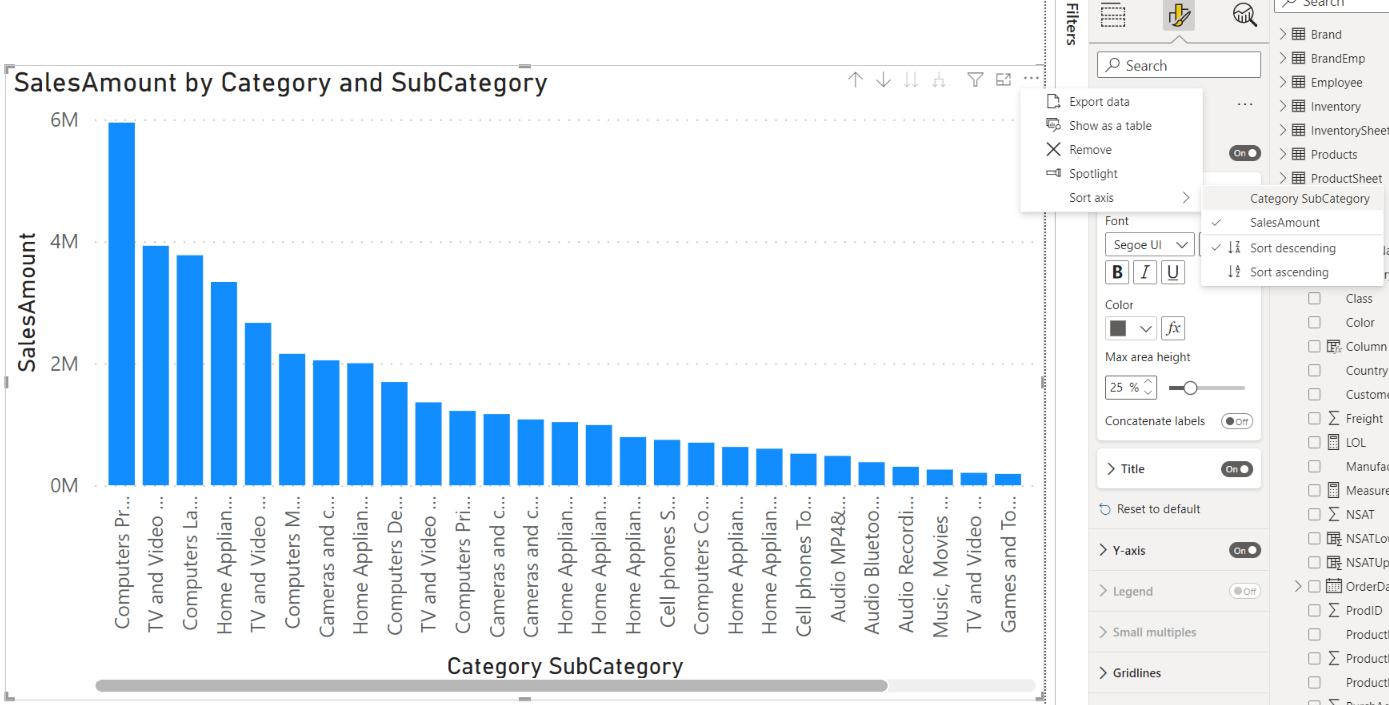
This latest update
(September 2022) adjusts the behaviour to ensure that the hierarchy axis is
automatically turned on when a user drags multiple fields into the x-axis
field well of charts which support the feature. Also, Microsoft has turned the concatenate
labels option off by default in the Formatting pane. Power BI will now auto-expand charts down to
the bottom of the hierarchy when you add fields to the x-axis field well
and will also sort on category by default once you drill down.
The exact changes
in logic are as follows:
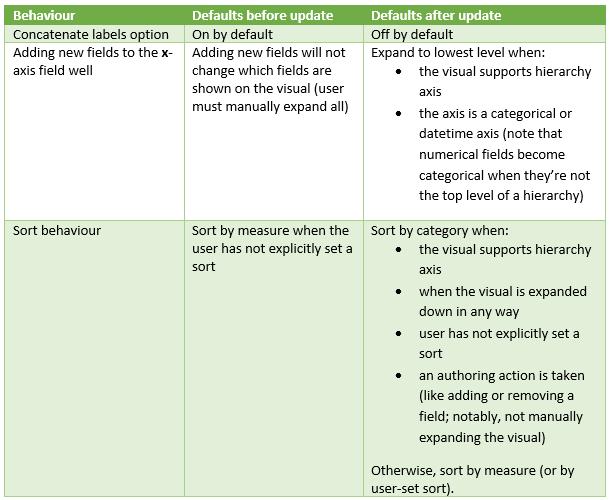
This only changes
how Power BI responds to authoring actions, so existing reports should not be
affected, and you should be able to recreate any previous sort or expand state
after this release as well.
It is understood
that adding new conditions to default behaviour will create some
inconsistencies in what happens when you perform an action. That said, Microsoft hopes that they will feel
intuitive as you create new charts and that they will save you clicks, Formatting
pane navigation and internet troubleshooting.
Check back next week for more Power BI tips
and tricks!

Be the first to comment